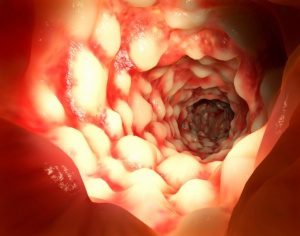Autoimmune Conditions and Endometriosis: Establishing a Correlation

Endometriosis is commonly defined as a chronic gynecological disorder that impacts up to 15% of women in their childbearing years [1]. Previously, it was believed that the condition primarily affected the abdominal and small pelvic regions. However, recent research strongly indicates that it is a systemic ailment [2]. While the exact causes of endometriosis remain elusive, immune system irregularities are evident in women with the condition. A meta-analysis has therefore probed into the correlation between endometriosis and autoimmune disorders [3]. Although further concrete studies are needed to supplement the existing research, there is substantial evidence suggesting a significant link between endometriosis and the immune system.
Exploring Endometriosis Symptoms: Beyond Cycle-Dependent Pain
Endometriosis, a benign ailment, involves the growth of cell clusters resembling those found within the uterus, but outside its confines [4]. Referred to as endometriosis lesions, these clusters bear a structural resemblance to the uterine lining. The lesions can manifest in various sites, including the uterine wall’s muscular layers, vagina, peritoneum, urinary bladder, and ureter. Additionally, they can impact the intestines, lungs, and liver, and result in skin scars.
Conventionally linked symptoms of endometriosis encompass cyclic lower abdominal discomfort, which might extend to the back and legs. Furthermore, endometriosis is implicated in diminished fertility or infertility [5]. Yet, recent investigations highlight that systemic inflammatory responses and heightened pain sensitivity are also integral aspects of endometriosis [6]. An association between endometriosis and rheumatoid arthritis [7] has been unveiled in recent research.
Unveiling Endometriosis: Unraveling Causes and Risk Factors
The definitive causes of endometriosis remain elusive to this day. Various theories exist, yet none comprehensively elucidate all dimensions of the condition [8]. Consequently, experts now posit that the genesis of endometriosis likely involves a combination of hormonal, immunological, anatomical, and (epi-)genetic factors.
Paramount theories concerning the development of endometriosis encompass:
- Retrograde Menstruation Theory: Advocates of this propose that endometrial cells enter the abdominal cavity through the fallopian tubes during menstruation.
- Coelomic Metaplasia Theory: This theory suggests that the structures of the endometriosis lesions originate from cells in the peritoneum, pleura (chest/rib lining), and ovaries.
- Stem Cell Theory: According to this theory, stem cells originating from bone marrow are implicated in the development of endometriosis lesions.
- Lymphatic/Vascular Benign Metastasis Theory: In accordance with this theory, endometriosis tissue is transported from the uterus to other body regions via the lymphatic system or blood vessels.
Endometriosis and Autoimmune Diseases: Study Overview and Findings
 The 2019 study under scrutiny is classified as a meta-study, denoting an examination and specific assessment of existing studies on the pertinent query. The study’s objective was to determine if, based on the prevailing research findings, a plausible link between endometriosis and autoimmune diseases can be inferred.
The 2019 study under scrutiny is classified as a meta-study, denoting an examination and specific assessment of existing studies on the pertinent query. The study’s objective was to determine if, based on the prevailing research findings, a plausible link between endometriosis and autoimmune diseases can be inferred.
In total, 26 studies adhering to the established criteria were encompassed within this meta-study. These studies collectively evidenced a correlation between endometriosis and autoimmune diseases. From this pool, four studies were further selected. These studies not only met the qualitative prerequisites of study design but also substantiated a substantial and scientifically meaningful association between endometriosis and autoimmune diseases. Among these four studies with confirmed outcomes, a correlation between endometriosis and the following autoimmune diseases is discernible:
- Systemic Lupus Erythematosus: A rheumatic ailment predominantly affecting the skin and joints, characterized by skin redness and joint discomfort.
- Sjögren’s Syndrome: Involving the salivary and lacrimal glands, this syndrome is marked by distinct gland-related issues.
 Rheumatoid Arthritis: Primarily impacting the joints of the hands and feet, this condition causes pronounced discomfort.
Rheumatoid Arthritis: Primarily impacting the joints of the hands and feet, this condition causes pronounced discomfort.- Celiac Disease: This condition entails a lifelong intolerance to gluten protein.
- Multiple Sclerosis: A chronic nervous system inflammation characterizes this disorder.
- Crohn’s Disease: An enduring inflammatory bowel ailment constitutes this condition.
Looking Ahead: Implications of the Study Findings
The study’s authors emphasize the necessity for further investigations to delve into the correlation between autoimmune diseases and endometriosis. While the present study successfully demonstrated a link between endometriosis and certain autoimmune diseases, it does not exclude the possibility of connections with other autoimmune conditions. Moreover, the inquiry remains regarding whether endometriosis acts as a trigger for autoimmune diseases, if it is an outcome of such diseases, or if both conditions share common underlying causes or triggers.

A recent study [7], as previously mentioned, exploring the link between endometriosis and the autoimmune disorder rheumatoid arthritis (RA), provides some insight. Observing women with endometriosis over an extended period, including those who did not have RA at the study’s outset, it becomes apparent that endometriosis is not necessarily an outcome of RA. Instead, it is conceivable that the autoimmune disease may arise subsequent to endometriosis, or both conditions might share a common causal factor.
The study’s authors urge healthcare providers to be mindful of the presence of other conditions when encountering corresponding symptoms in patients diagnosed with autoimmune diseases or endometriosis.
Summary:
Endometriosis, impacting around 15% of reproductive-age women, remains enigmatic in its origins. Current research has illuminated the systemic nature of this ailment. A recent comprehensive study has delved into the intricate interplay between endometriosis and autoimmune diseases. The investigation has successfully unveiled a correlation between endometriosis and at least six distinct autoimmune conditions. The ongoing inquiry now seeks to elucidate the intricate dynamics between these two conditions—how they potentially influence or trigger each other, or share underlying causes.
References
- Diagnosis and therapy of deep infiltrating endometriosis
The Diagnosis and Treatment of Deep Infiltrating Endometriosis
Dtsch Arztebl Int 2010; 107(25): 446-55; DOI: 10.3238/arztebl.2010.0446
Halis, Gülden; Mechsner, Sylvia; Ebert, Andreas D. - https://www.thelancet.com/journals/lancet/article/PIIS0140-6736(21)00389-5/
- https://pubmed.ncbi.nlm.nih.gov/31260048/
- Gynecology and obstetrics. Springer Verlag, 2006, ISBN 3-540-32867-X; excluding cancer.
- Ebert, Andreas D.. Endometriosis: A Guide to Practice, Berlin, Boston: De Gruyter, 2019.
- https://www.doccheck.com/de/detail/articles/32068-endometriose-eine-chronische-systemerkrankung
- https://pubmed.ncbi.nlm.nih.gov/33331948/
- https://www.rosenfluh.ch/media/gynaekologie/2012/03/pathogenese.pdf
- Endometriosis and Migraine: What is the Connection Between the Two Conditions? - 8. October 2023
- Endometriosis and Migraine: What is the Connection Between the Two Conditions? - 8. October 2023
- Can I Inherit Endometriosis? - 7. October 2023
